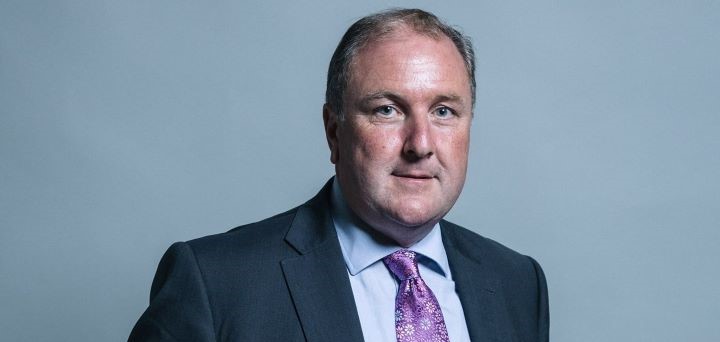 The two workstreams of the Office for Local Government (Oflog) and the system leader for local audit should be “separate”, the minister for local government has stressed.
The two workstreams of the Office for Local Government (Oflog) and the system leader for local audit should be “separate”, the minister for local government has stressed.
During a Levelling Up, Housing and Communities (LUHC) Committee inquiry on Oflog’s role and purpose, Simon Hoare stated that he did not agree with suggestions that the body should become the audit system leader.
“I think the workstream of Oflog is very clear. I think the audit function is also very clear.
“There is nothing to be anxious about, but let’s keep the two workstreams of audit and Oflog separate.
“I think the work which Oflog has at hand going forward is sufficient to occupy, without growing it into some sort of shadow department, if you will, in terms of magnitude,” Hoare explained.
Suggestions to make Oflog the new audit system leader were put forward at a previous inquiry session. Attendees, including CIPFA chief executive Rob Whiteman, explained that due to the current backlog of accounts and in the absence of a timeline for the establishment of the audit reporting and governance authority (ARGA) as system leader, it “makes perfect sense” for Oflog to fulfil this role.
However, at the most recent session, Hoare stated that this is not the view of the government, although “that is not to say that their position is not entirely respectable and arguable, we have just arrived at a different conclusion”.
“Oflog doesn’t have the bandwidth in terms of budget or personnel in order to deal with the audit scenario; that is a complex piece of expertise,” Hoare stressed.
Although, he reassured the committee that after Autumn, the Department for Levelling Up, Housing and Communities (DLUHC) will “give proper, serious consideration to the future of local government audit”.
A ‘light-touch’ organisation of over 100
Touching on the proposed budget for Oflog, it was suggested by the minister and Catherine Frances, director general, local government, resilience and communities at DLUHC, who also gave evidence at the inquiry, that the body would have a budget of “around £10m”. This would be sourced through the department’s main budget from the Treasury.
When questioned by the LUHC committee on what would have been used with these funds if Oflog wasn’t created, Hoare explained that “this is not an either or”.
“In a department that spends a tremendous amount of money and allocates a tremendous amount of money, the taxpayer is going to get great value for money from the service that Oflog is able to deliver,” he added.
In addition to costing £10m, both Hoare and Frances explained that Oflog will be a “light-touch organisation”, with a workforce of “north of 100”.
“It won’t be left under-resourced either in terms of finance or people,” Hoare stated.
No ‘finger-wagging’
Throughout the inquiry session, Hoare also emphasised that Oflog is “not a bossy, finger-wagging, top-down organisation, it’s one which engages with the sector sharing a common goal”. He added that this is also the case for the new productivity plans, with the minister outlining the guidelines of the documents to councils in a letter last week.
“I don’t like the finger-wagging, pointing, name calling. We should all be focused and none of us should be afraid of a forensic spotlight getting into performance, expenditure, value for money and all those attendant good things.
“Now, if there are egregious examples, then I think the department and I would be failing in our duty if we didn’t draw attention to them. But these productivity plans are not designed, and I want to be absolutely clear, to create ‘gotcha’ moments in either the national or the local government press,” Hoare stated.
‘Accommodated modus operandi’
According to DLUHC, Oflog has also been created to spot “early warning signs” of governance and financial failures at councils. On top of this, the body has established an expert panel to advise the government on the financial sustainability of the sector.
When questioned by the LUHC committee about whether all of these components as well as productivity plans will cause duplication of practice and unnecessary burden on local authorities, Hoare responded by saying it is “absolutely key” that this does not happen.
Hoare explained: “My instinct is that Oflog, the productivity plans, the work in the improvement arena that the Local Government Association, Solace and CIPFA do, will all find amongst themselves an accommodated modus operandi, in order to ensure that they are deriving the maximum benefit without creating a hugely onerous, reporting, regulatorily regime.”
It is more about having “more hands on the pump” in the hope for a “greater volume of water as a result”, Hoare added.
—————
FREE bi-weekly newsletters
Subscribe to Room151 Newsletters
Follow us on LinkedIn
Follow us here
Monthly Online Treasury Briefing
Sign up here with a .gov.uk email address
Room151 Webinars
Visit the Room151 channel













